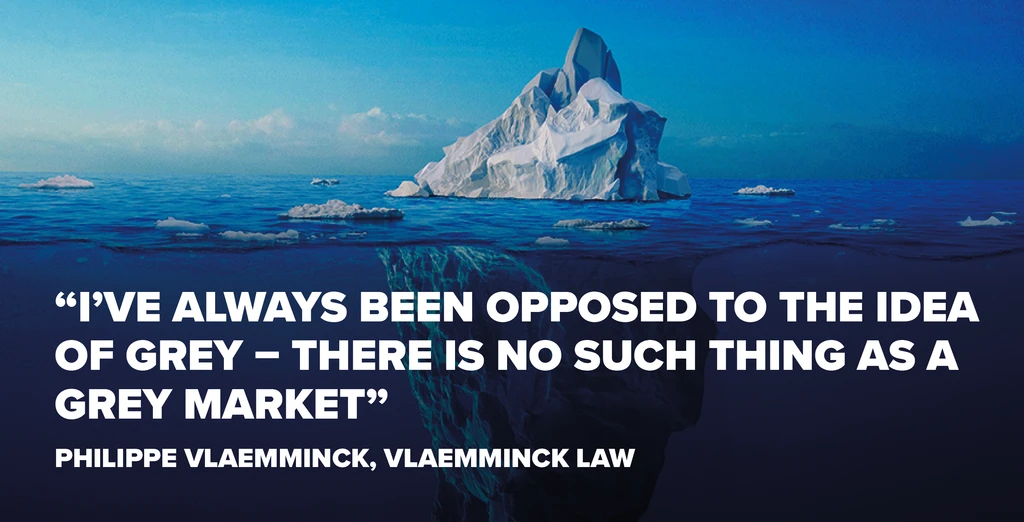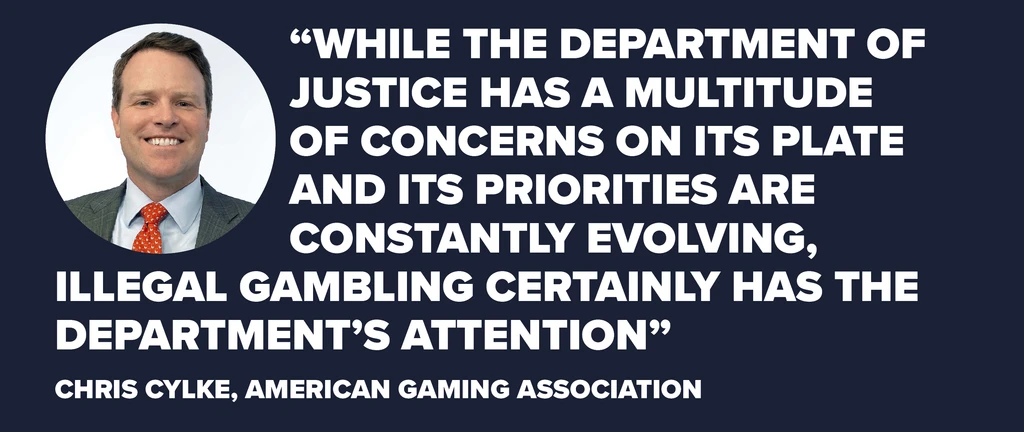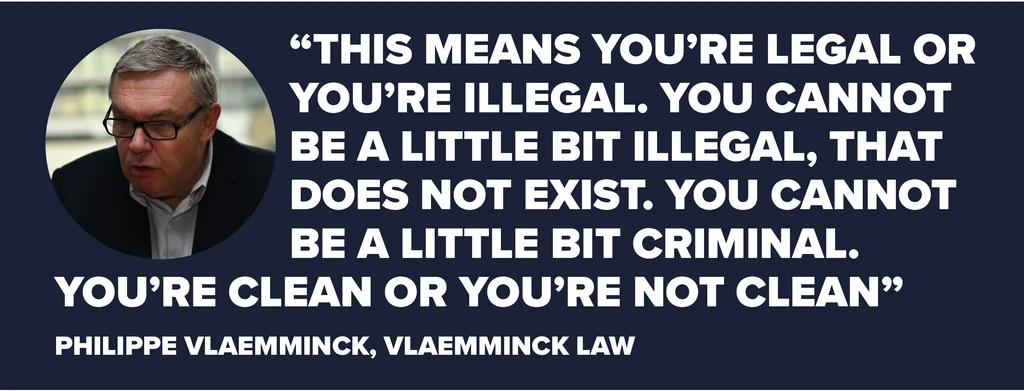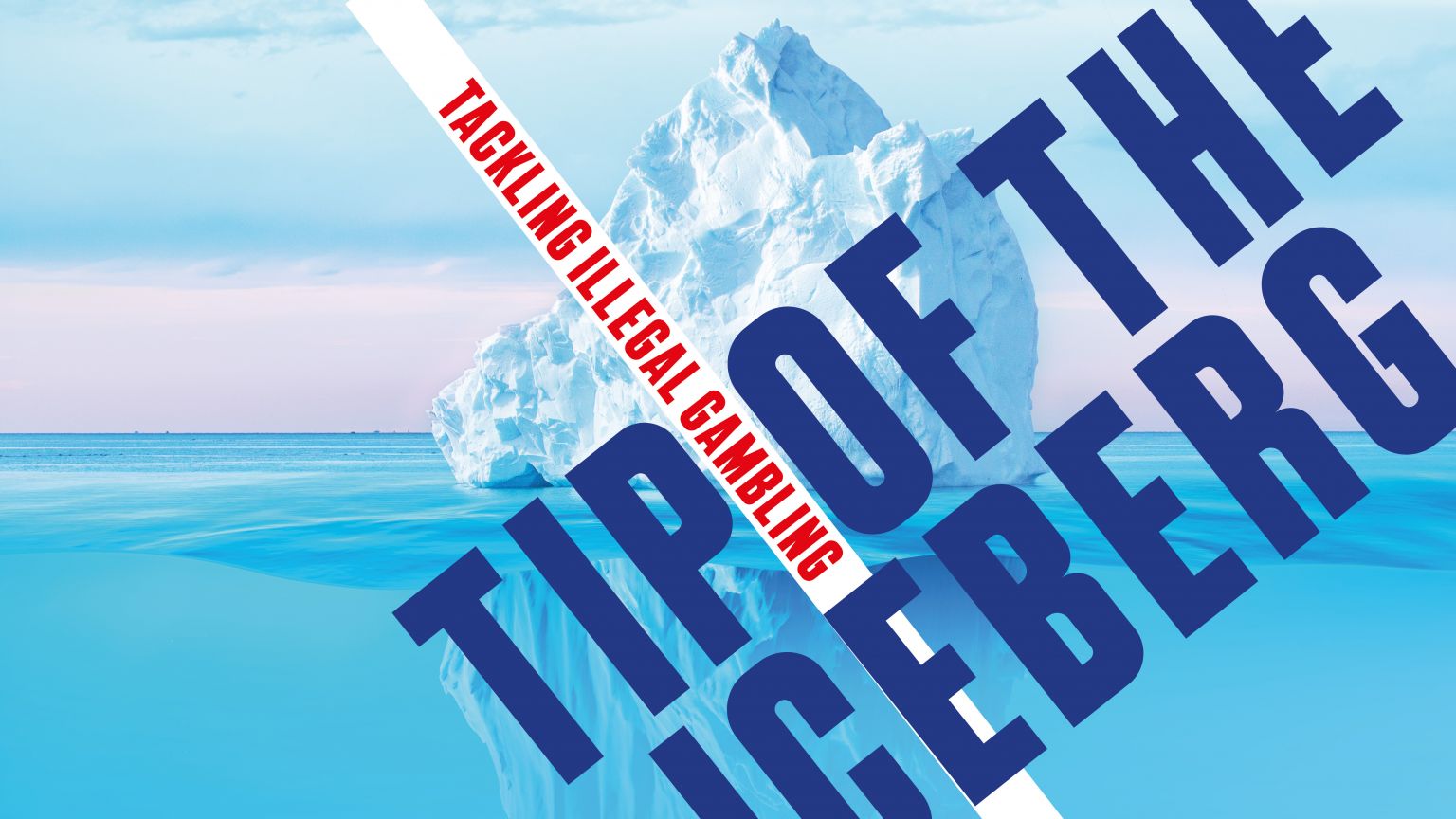Illegal gambling could be dismissed as a fact of life, but in a heavily regulated sector efforts to stamp out black market operators are ramping up. Zak Thomas-Akoo questions how far these efforts can go, and whether this will lead to the end of grey markets.
The industry has an evil twin. Alongside the highly regulated legal online gambling market sits another, roughly comparable in size, that has proved resistant to efforts to reduce its scale and spread.
This black market effectively gave birth to the “white” online sector, but offers none of its safeguards or benefits.
Illegal operators rarely offer consumer protection measures, and in many cases fail to even guarantee fair play or payouts. It sits beyond the reach of regulators, fails to fulfil licensing obligations and pays no tax into public coffers.
But as governments and financial institutions gear up to take steps to stamp out illegal gambling, the regulated sector risks getting caught in the crossfire. Pressure to tackle the issue on both sides of the pond is rising, putting legal operators – particularly those in Europe – at risk of finding their access to financial services limited.
Iceberg market
To Ismail Vali, founder of regulatory intelligence platform Yield Sec, the scale of the threat means that gambling is becoming an “iceberg market”, defined by a shadow sector comparable in size to the legitimate one.
Large chunks of the total market exist under the waterline. But where the waterline sits is debatable.
The definition of illegal gambling in some quarters is hazy. It can span everything from criminal operations run by gangsters to a legitimate operator’s activity in a jurisdiction without a regulatory regime.
Even at a national level, there’s significant confusion. Take the example of Malta, which for years prevented the Council of Europe from unilaterally signing the Macolin Convention on match-fixing. It took exception to the definition of illegal sports betting as “any sports betting activity whose type or operator is not allowed under the applicable law of the jurisdiction where the consumer is located”. To sign would have potentially defined any Malta-licensed B2C business offering its services to another European Union jurisdiction as illegal in one fell swoop.
Indeed, grey market exposure, or activity in a reregulating market, is a fact of life in the industry. Many otherwise blue-chip companies are involved in such markets to varying degrees, even if they passively accept bets from local customers.
For some, this has become increasingly controversial as the shift from dot.com to dot.country continues at pace. It raises questions about how businesses should think about the grey market in the years ahead. For what some view as grey, many see as definitively black.
Bank freeze
The great unknown is how European banks will define illegal gambling. Last November, the European Commission, in its supranational threat assessment, raised its money laundering and terrorist financing (ML/TF) online gambling threat level to four, the highest possible state of alertness.
This was accompanied by a lowering of the threat level for land-based gambling.
This increased risk of money laundering and terrorist financing for online gambling is influenced by the illegal gambling market and its growth.
After all, that black market is a business like any other. It requires bank accounts, cash flows and balance sheets. Financial structures need to be accessed to keep things running.
One threat to the European industry as a whole is how the new, tougher ML/TF rules will affect the prospects of banks de-risking their portfolios. This refers to the doomsday possibility that banks and financial institutions may refuse to work with online gambling operators at all – citing the increased risk on their balance books.
Vali says the Commission believes risk has shifted online because it’s “where all the crooks have moved to”. If that’s the stance that is taken, then grey and black market sites could pull licensed businesses into their orbit.
Cutting off funding
It could get worse. According to Philippe Vlaemminck, senior managing partner at Vlaemminck.Law, there has even been talk of European tax rules progressing in this direction. “In general, already there is a problem of financing in the gambling sector,” he says.
“Banks are investigating a number of sectors where they would prefer not to provide finance any more, and the new European taxonomy rules are also going into that direction. Gambling at certain moments was included in the taxonomy, though it was later deleted.”
While a general increase in financial compliance requirements will no doubt make it much harder for illegal gambling operators, if this limits the ability of black market operators to access legitimate lines of financing, it could be beneficial for the industry. But the blurred lines between black and white mean highly regulated businesses may feel the pinch.

If banks indiscriminately lock out legal businesses from the financial system it may counterintuitively prove to be a boon to the illegal market. And when legal options are harder to access, such as in parts of America, the black market is more than happy to pick up the slack.
Clean or not clean
How does one go about defining that black market? Many in the industry would argue that’s tricky. Yet in Vlaemminck’s eyes, there is no ambiguity.
“I’ve always been opposed to the idea of grey – there is no such thing as a grey market,” he says. “There is a black and a white market. This means you’re legal or you’re illegal. You cannot be a little bit illegal, that does not exist. You cannot be a little bit criminal. You’re clean or you’re not clean.”
Many would argue there is a clear difference between black and grey, though. They’re certainly treated differently by law enforcement and regulators.
However, perhaps the distinction is worth less than it used to be. As the regulated sector steps up action across unlicensed gambling on both sides of the Atlantic, there is a growing case that there is less and less scope for debate.
But how, then, can we attempt to illustrate the scale of the issue?
Sizing up the black market
Let’s start with the US, where the online black market is enormous by any measure. In a November 2022 report, the American Gaming Association (AGA) estimated stakes for illegal igaming and online sports betting stood at $401.8bn (£331.5bn/€373.9bn) per annum, rising to more than half a trillion dollars when illegal land-based gambling is included.
Unlike in Europe, online gaming is a novelty or illegal throughout much of the country. Sports betting is legal in 31 states and the District of Columbia; online casino in just six.
But in the US, the situation is clear cut. Any scope for ambiguity was effectively cut off when the Department of Justice unsealed indictments against PokerStars, Full Tilt and Cereus in April 2011.
In estimating the size of the European black market, the problem is laid bare. “Figures vary between $4bn and $24bn,” says Hermann Pamminger, secretary-general of the European Casino Association, referring to total revenue rather than stakes.
“Individual studies have placed the European figure closer to $24bn, having adjusted the definition of ‘illegal’ to encompass all operators without a licence operating within EU countries to which they offer their services – which is a much wider net,” he adds.
This would include any business operating in a jurisdiction such as Malta targeting players in another EU country using the right to free movement of goods and services. Should the banks take a similar view, a host of big names could find large swathes of their business defined as illegal.
According to Vali, deliberate financial obfuscation means the scale of the unlawful market is often misunderstood.
The absence of correct transaction codes means it can be difficult to even decipher the character of a transaction and therefore track it accurately.
“Criminals don’t clarify their transactions by the relevant classification,” he says. “The whole point is to conceal them as other commodities so they avoid the glare of what gaming and AML law demands.”
Leading the counterattack
In the US, the AGA is spearheading efforts at a federal level. Gambling regulation may be the preserve of individual states, but there is a centralised government and the Department of Justice that can take up the matter.
According to Chris Cylke, AGA’s senior vice-president of government affairs, the DoJ has been looking seriously at the issue. “While the Department of Justice has a multitude of concerns on its plate and its priorities are constantly evolving, illegal gambling certainly has the Department’s attention,” he says.
“We have continued to engage, educate and partner with the FBI, policymakers and other law enforcement on the need to combat these bad actors.”
Law enforcement is the key piece of the puzzle in the US. Stemming from the country’s decades-long battle against organised crime, many of the necessary laws needed to bring the hammer down on unlawful operators already exist on the books.

After all, the Wire Act, the contentious legislation that still provokes debate on the spread of mobile betting and gaming, was originally designed to target mob-run gambling. Much of what is needed is simply to enforce or better police the existing rules.
Coordination concerns in Europe
This coordination isn’t on offer in Europe; the European Commission closed all infringement and complaints proceedings related to the industry in 2017, deeming gambling an issue for individual member states.
This means the question of how to actually fight illegal operations effectively is much tougher to answer.
One approach is for regulators to penalise illegal gambling by making grey or black market activity grounds to reject a licence application.
These so-called “suitability requirements” aren’t so common in Europe, but some US states have made efforts to bring them in.
Involvement in grey markets became an issue for Entain’s licence application in Nevada and PokerStars’ in New Jersey. While both operators received licences, questions were raised over executives and business done in jurisdictions where online gambling is not regulated. In each case, there were significant personnel changes at a senior level before licences were issued.
Australia’s example
More pointedly, Australia has moved beyond financial penalties and has pioneered the prosecution of individual executives involved in unlicensed activity. This contrasts with European policymakers who have so far avoided the topic of criminal liability.
But could that change?
Vlaemminck sympathises with the sentiments of this strategy. Equally, he argues that such an approach faces hidden complexity and must be balanced with financial measures.
“The question of criminal liability is, who is liable at the end of the day,” he says. “Is it a company? Is it actually the CEO of the company? Is it actually the chief technology supplier?
“The matter is first of all criminal liability of the companies so that there can be assets seized and things like that, because the financial harm is in my view more important than anything else.
“So, they must feel the pinch because a CEO is very easy to replace – and I think it is a little bit limited if you only take the persons involved in that. So yes, I think that it is a balancing act between the liability of the individual CEO who is actually doing illegal things.”
Fighting black markets with technical innovation
What’s clear is that new tools are needed. Despite the resources available to regulators and law enforcement, the black market has so far proved largely resistant to attempts to reduce its size.
As already outlined, one evergreen problem is a lack of clarity over the size, coherence and shape of the black market.
Vali, an industry veteran with the likes of Ladbrokes and PokerStars on his CV, believes he has the answer. Using technology developed initially for counter-insurgency purposes, his platform YieldSec tracks the illegal market in a minutely detailed way.
Once government organisations have a better idea of what they are up against, they will be in a better position to develop tools to counter the illicit organisations.
“Once you legalise and regulate, the biggest enemy and risk to everything you’ve established as an ecosystem is from one thing: crime,” Vali says.
Again and again, he emphasises that the black market was not what we thought it was, that the old rules of thumb were wrong.
“I’m not interested in using the word ‘estimates’ where Yield Sec is concerned – we developed this from military DNA for a reason: estimating is not good enough. We have to know where the audience is, what they are doing, how they are finding the content and transactions, and what the level of interaction is,” he says.
“What we have is one gambling marketplace per jurisdiction and a duality of industry operators. Some are legal and licensed; many, however, are illegal and unlicensed to be there by that specific jurisdiction. If they are taking revenue from any regulated jurisdiction that they do not have a local licence for, then they are criminal operators.”
Software like that provided by YieldSec is likely to become a key tool in the fight against illegal gambling. Although the issue of what is black, white and grey remains open to interpretation.

Brave new world
To an extent, it’s all a matter of perspective. Let’s face it, in the past, all online offerings were in a sense illegal, insofar as no legal frameworks to work within existed.
The progress of technology, especially in the last 30 years, has been rapid to the extent that it’s often said industry developments outstrip regulators’ efforts.
“I remember the first time I heard somebody talking about internet gambling, which was actually the Finnish state-owned operators,” Vlaemminck recalls. “Before they were the first ones in the world to operate games on the internet, nobody believed that it would ever emerge.
“Well, it did emerge – but whatever technology is there, you need to do it in a legal manner otherwise you kill the technology. And I believe that is what a lot of people in the industry have started to understand.
“They were illegal in the beginning. They thought they could continue like that. They have been stopped. They have been stopped in Europe, they have been stopped in the US, they have been stopped everywhere.”
The industry largely understands that today’s legalised regulatory regimes are its greatest accomplishment. The frameworks were built in reaction to facts on the ground created and pushed at every stage by pioneering businesses.
The black market operations in their most extreme form threaten that accomplishment, by making industry and government play a kind of elaborate pantomime while the real winnings are hoovered up by entities playing a totally different game.
Complicating this hugely is the status of grey market operators and how they intend to develop in the years ahead. The direction of travel in Europe is firmly in the opposite direction, and it may be that in future we see a more definitive split between the truly white and the truly black.
But as the fight against illegal gambling is ramped up, that grey zone between those two pillars is likely to become increasingly squeezed – and operators will increasingly find themselves having to choose which path to take.

